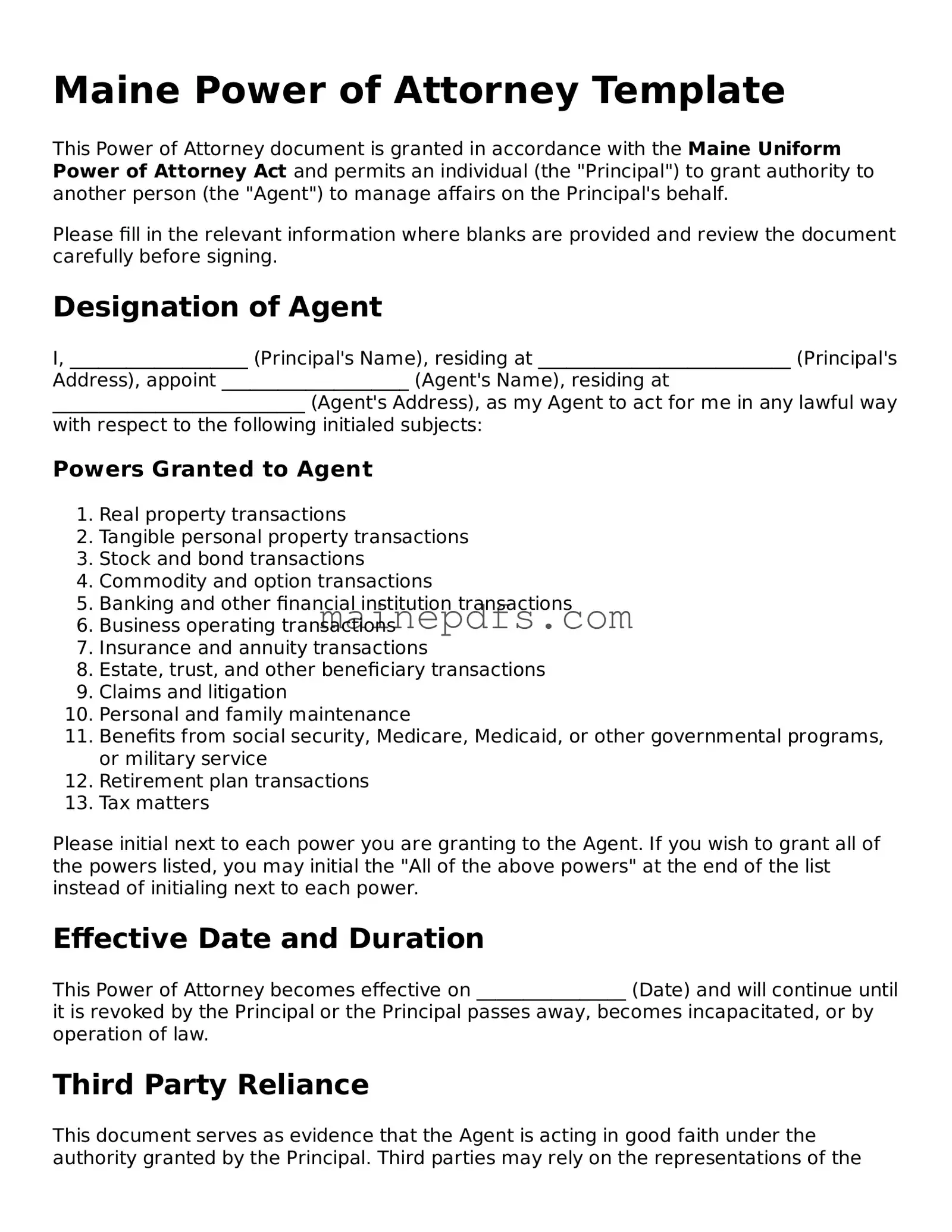Maine Power of Attorney Template
This Power of Attorney document is granted in accordance with the Maine Uniform Power of Attorney Act and permits an individual (the "Principal") to grant authority to another person (the "Agent") to manage affairs on the Principal's behalf.
Please fill in the relevant information where blanks are provided and review the document carefully before signing.
Designation of Agent
I, ___________________ (Principal's Name), residing at ___________________________ (Principal's Address), appoint ____________________ (Agent's Name), residing at ___________________________ (Agent's Address), as my Agent to act for me in any lawful way with respect to the following initialed subjects:
Powers Granted to Agent
- Real property transactions
- Tangible personal property transactions
- Stock and bond transactions
- Commodity and option transactions
- Banking and other financial institution transactions
- Business operating transactions
- Insurance and annuity transactions
- Estate, trust, and other beneficiary transactions
- Claims and litigation
- Personal and family maintenance
- Benefits from social security, Medicare, Medicaid, or other governmental programs, or military service
- Retirement plan transactions
- Tax matters
Please initial next to each power you are granting to the Agent. If you wish to grant all of the powers listed, you may initial the "All of the above powers" at the end of the list instead of initialing next to each power.
Effective Date and Duration
This Power of Attorney becomes effective on ________________ (Date) and will continue until it is revoked by the Principal or the Principal passes away, becomes incapacitated, or by operation of law.
Third Party Reliance
This document serves as evidence that the Agent is acting in good faith under the authority granted by the Principal. Third parties may rely on the representations of the Agent as if the Principal had made them.
Signature
Principal's Signature: ______________________ Date: ____________
Agent's Signature: _________________________ Date: ____________
State of Maine)
County of ____________)
This document was acknowledged before me on _______________ (Date) by _____________________ (Principal's Name) and _____________________ (Agent's Name).
__________________________________
Signature of Notary Public
My commission expires: _______________
Notice to the Principal
Remember, this Power of Attorney allows your Agent to make decisions for you. Choose someone you trust. You may cancel this document at any time.
Notice to the Agent
As the appointed Agent, you have a duty to act consistently with the Principal's expectations and best interests. Keep a record of all transactions made on behalf of the Principal.

